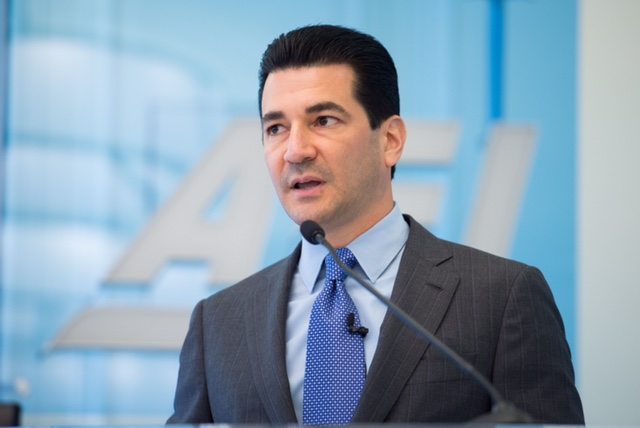
Earlier this month, President Trump nominated Dr. Scott Gottlieb to serve as the new FDA Commissioner, pending confirmation by the Senate. Dr. Gottlieb served in several senior leadership roles in the FDA and the CMS, including Deputy Commissioner for Medical and Scientific Affairs at the FDA, during the George W. Bush administration. More recently he has worked as a fellow at the American Enterprise Institute, which is a conservative Washington think tank, and served as an advisor to investment firms.
Dr. Gottlieb also has several ties to the pharmaceutical industry, including as a consultant and seats on several corporate boards. It is estimated that he has taken more than $400,000 from drugmakers in the last few years, according to MarketWatch. Former FDA Commissioner Robert Califf also had similar ties to the industry before his appointment, and took in about $66,000 in payments between 2013 and 2015.
PM360 spoke to Peter Pitts, President and Co-founder of the Center for Medicine in the Public Interest, about Dr. Gottlieb’s nomination. Pitts is also a former Associate Commissioner for External Relations at the FDA and worked with Scott for two years at the Agency. Pitts discusses what to expect if Dr. Gottlieb is confirmed as commissioner.
PM360: How will Dr. Gottlieb’s experience at the FDA impact his potential new role?
Peter Pitts: Two of the most important things he brings to the Commissioner’s job are his understandings of the people who work there, especially the senior staff, and the process, how the agency works. He’s going to be able to sit down in the Commissioner’s office and hit the ground running. He has no learning curve, and that’s very unusual when it comes to a new FDA Commissioner. Generally, it takes six months to a year to really understand the lay of the land, who they can trust, who they can work with, and what the priorities are. Scott knows all that already, and people within the Agency trust him, which is another tremendous attribute.
He also understands that it’s not just about speed, but doing things more predictably. That should allow industry to have faith in investing in more innovative development programs. Scott also has a very progressive mindset on things such as the FDA’s role in the sharing of off-label communications, and, as a practicing physician, he understands the role of the patient.
Furthermore, he recognizes that there are limits to the FDA’s regulatory authority—that the Agency has a job to do and needs to be confined to what it is supposed to be doing as opposed to what other people would like it to do. Lastly, from the communications perspective, he has the ability to explain complicated ideas in ways everybody can understand. He’ll be a Commissioner who can explain to the general public and politicians exactly what the FDA’s mission is and how it can achieve the goals in set for it.
President Trump has been trying to rein in regulation in all facets of government. He even announced the rule where you can’t propose one new regulation without eliminating two. How would that affect how Dr. Gottlieb runs the FDA?
Well, I don’t think the president is against regulation. The president is against bad regulation and excessive regulation, and I think Scott certainly agrees with both of those things. What you’ll see is the FDA focusing on what it should be doing and what it can do versus trying to expand its regulatory scope.
One of the topics mentioned by some of the other rumored candidates for this position was faster drug approvals. Do you think that’s something we’ll see under Dr. Gottlieb?
It’s not only a question of faster drug approvals. It’s a question of what types of drugs are going to be reviewed faster. There’s a difference between approving drugs faster and reviewing drugs faster. There are lots of pathways in place now making that happen. What Scott has talked about in terms of helping the administration pursue its promise of lowering drug prices is how to more aggressively approve generic drugs faster. He understands that the FDA can play a role in both value (in terms of bringing new products to market), and in terms of pricing (bringing generic drugs to market faster, something that generally does not get much attention).
Sticking with faster drug approvals, will the 21st Century Cures Act have any impact on that?
When it comes to the 21st Century Cures Act, the words are right, but there are no dollars attached to it. It’s a philosophical document more than anything else, and I don’t think anybody disagrees that you want to review important products to market faster. But it also requires a better understanding of what risk and benefit look like, and a more predictable viewpoint of how risk and benefit are dealt with from a review division’s perspective. There has to be a proper balance and Scott is open to looking at new types of evidence that can bring drugs to market more rapidly such as real-world data and patient registries.
What other new ideas would Dr. Gottlieb bring to the table?
He’s got some very innovative ideas on non-biologic complex drugs and how they should be regulated as well as biosimilars from a pharmacovigilance perspective. When it comes to industry, Scott recognizes the importance of being a regulator, but also being an ally in advancing the public health, which is a very nuanced proposition. I believe he can get industry to do things that previous FDA administrations were not able to do. For example, working with industry and academia on validating biomarkers would be a tremendous step forward as would working with industry and academia on refining the validated tools to use real-world data in regulatory decisions. All of these things point to a very 21st century regulatory model and mindset.
You mentioned his relationship with pharma. He has a lot of ties to pharma companies, so how else do you think that would impact his role?
I believe what industry appreciates about Scott Gottlieb is that he says what he means, and he speaks his mind. It’s not going to be a lot of regulatory psychobabble. He’ll tell industry what he wants to see happen, what he expects the Agency to do, and he will get them to partner up for the public health. A lot of people are saying, “Oh, he’s too close to industry,” but the fact of the matter is if you’re not close to industry and you don’t understand how industry operates, you can’t regulate them as well as you should.
Will patients see anything differently, because they don’t necessarily focus on the same things that the industry does?
Scott is a practicing physician, and understands how the system works. He probably understands better than anybody that has sat in that seat to date the importance of the patient voice, not just in terms of anecdotes, but in generating data and the ability to do the right thing by weighing risk and benefit—not just from a regulatory science perspective, but from the patient perspective.
Other candidates talked post-approval monitoring and how the FDA was slow to adapt and take advantage of new technologies such as wearables and social media to get more real-time reports about how products are working. Is that something Dr. Gottlieb will focus on as well?
21st century pharmacovigilance is going to be crucial. As you approve more drugs for more serious conditions based on thinner data packages, you’ll need to rely on more robust and creative Phase IV studies, better pharmacovigilance reports, social media, and real-world evidence to understand what’s actually happening in the real world. Scott understands the difference between efficacy in a clinical trial environment and effectiveness in the real world. And that’s going to allow the Gottlieb FDA to bring more drugs to market quicker but with much more stringent and strategically designed post-marketing data collection proposals.





